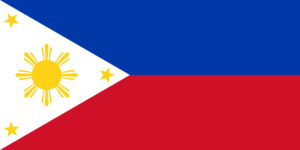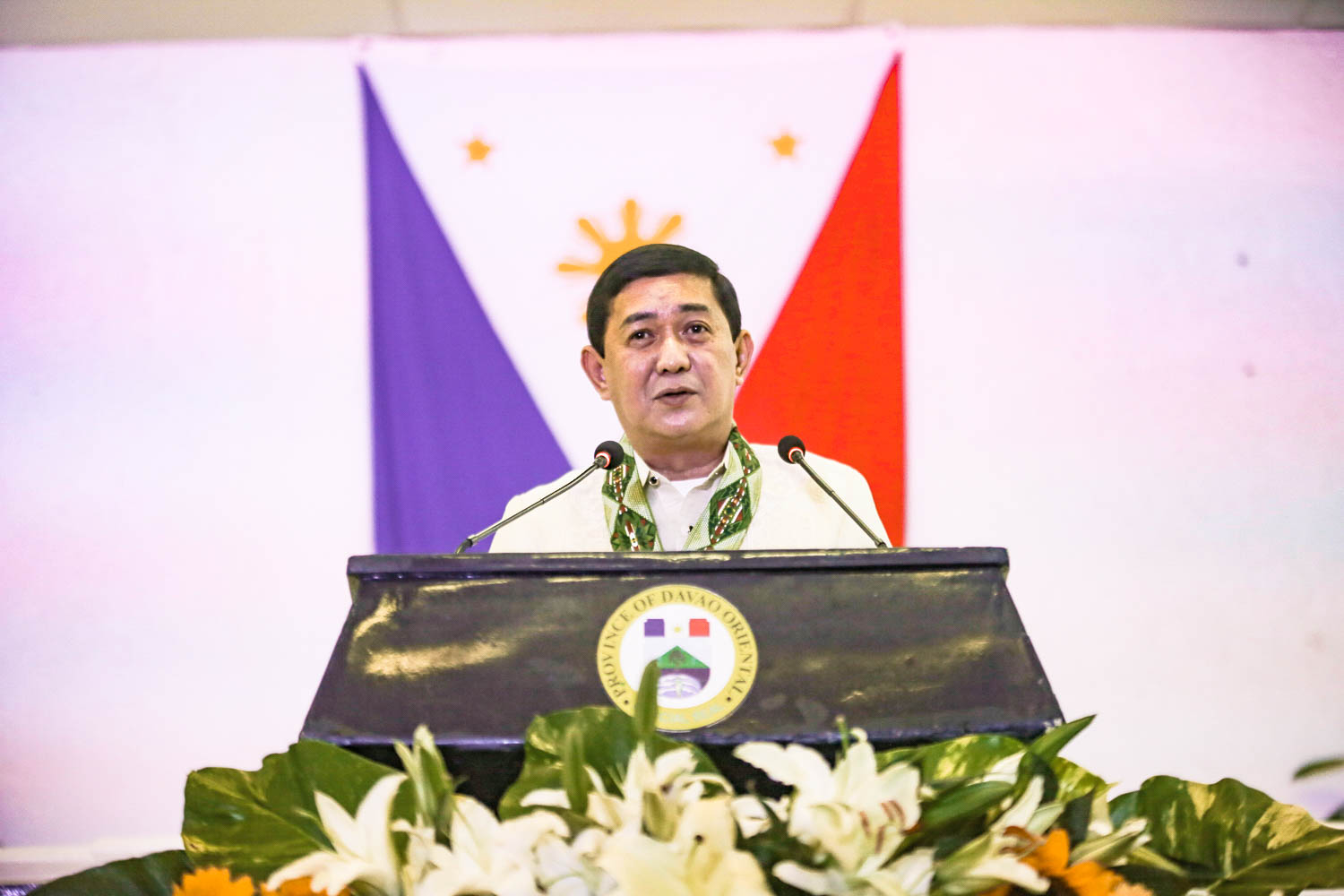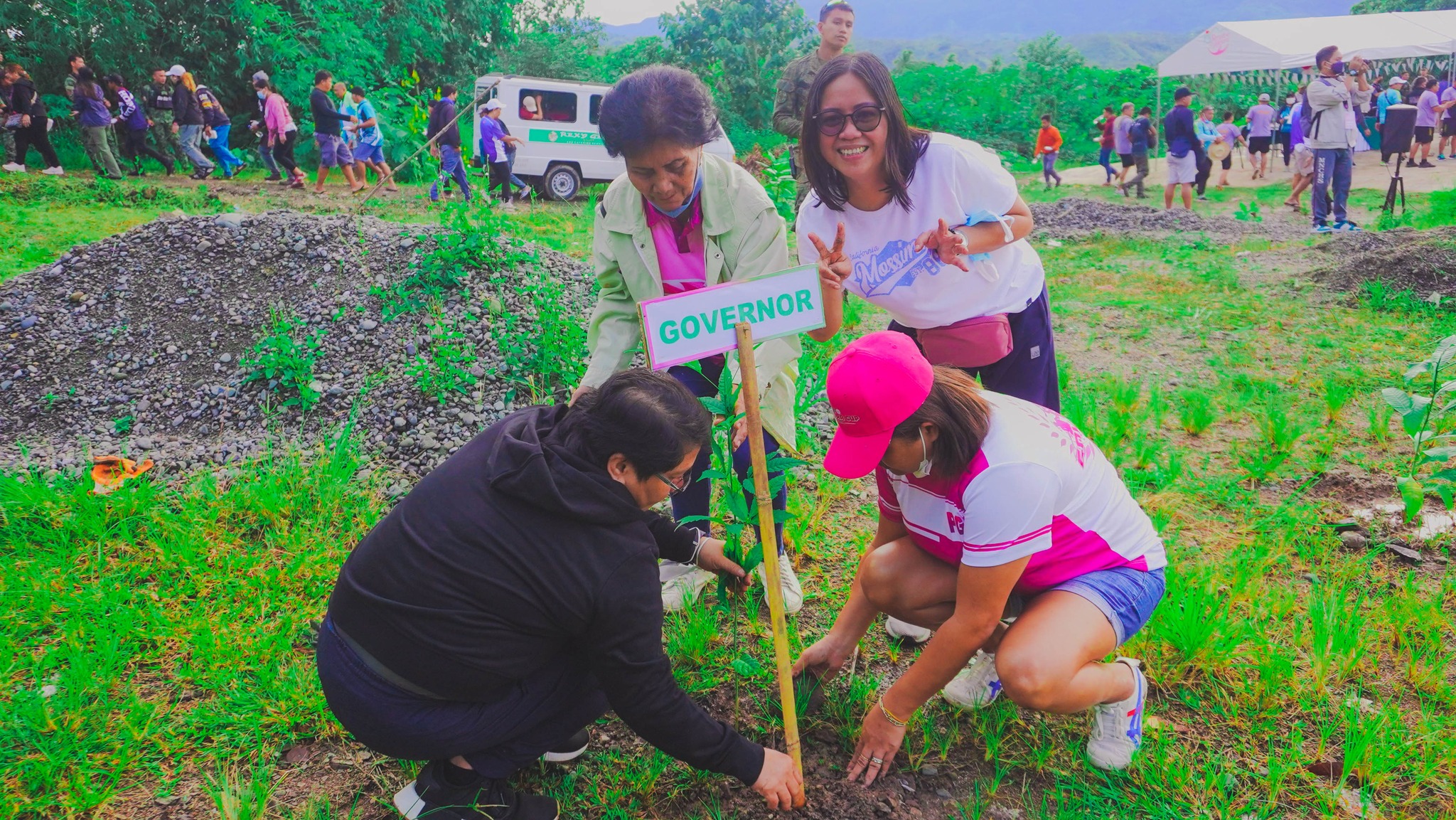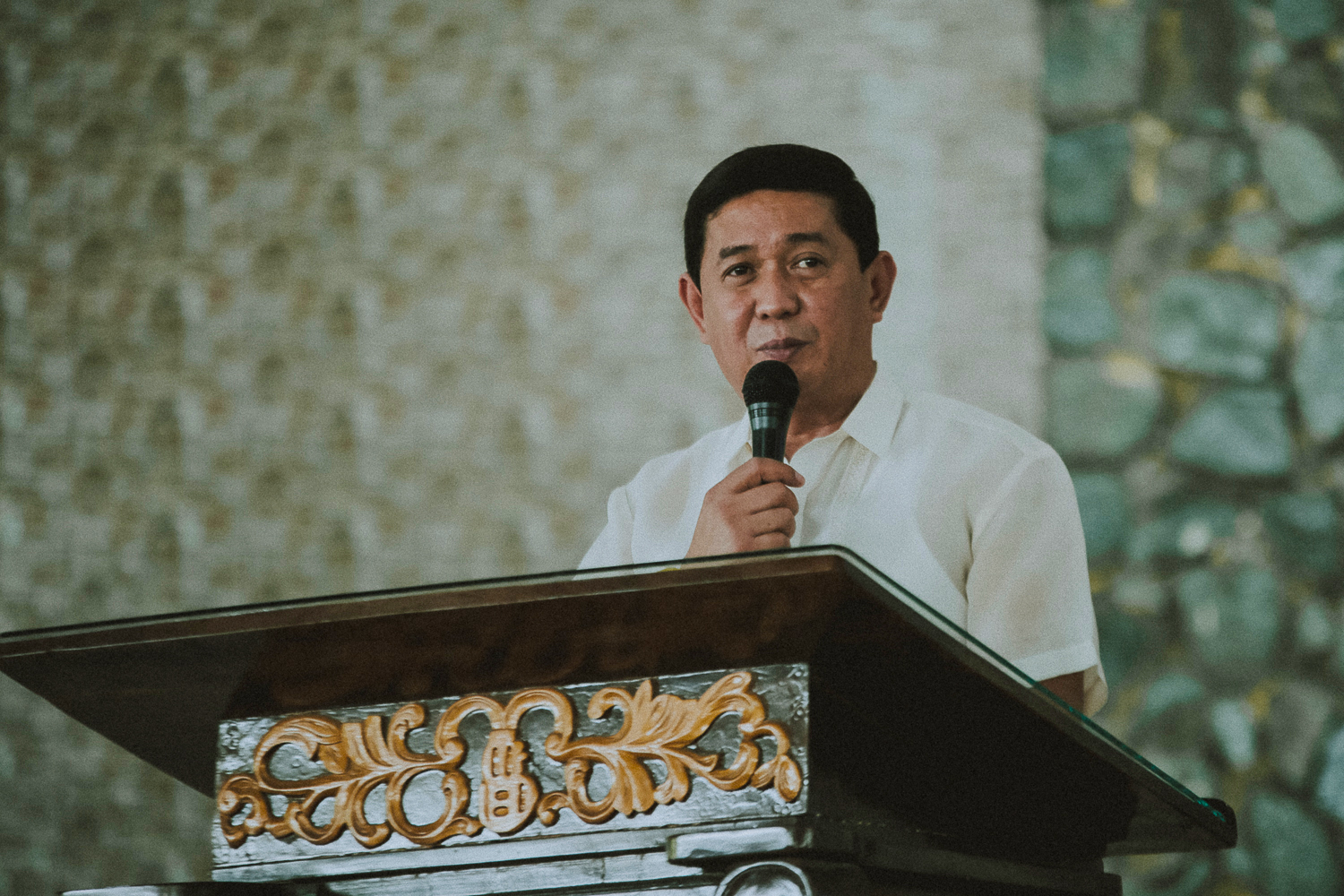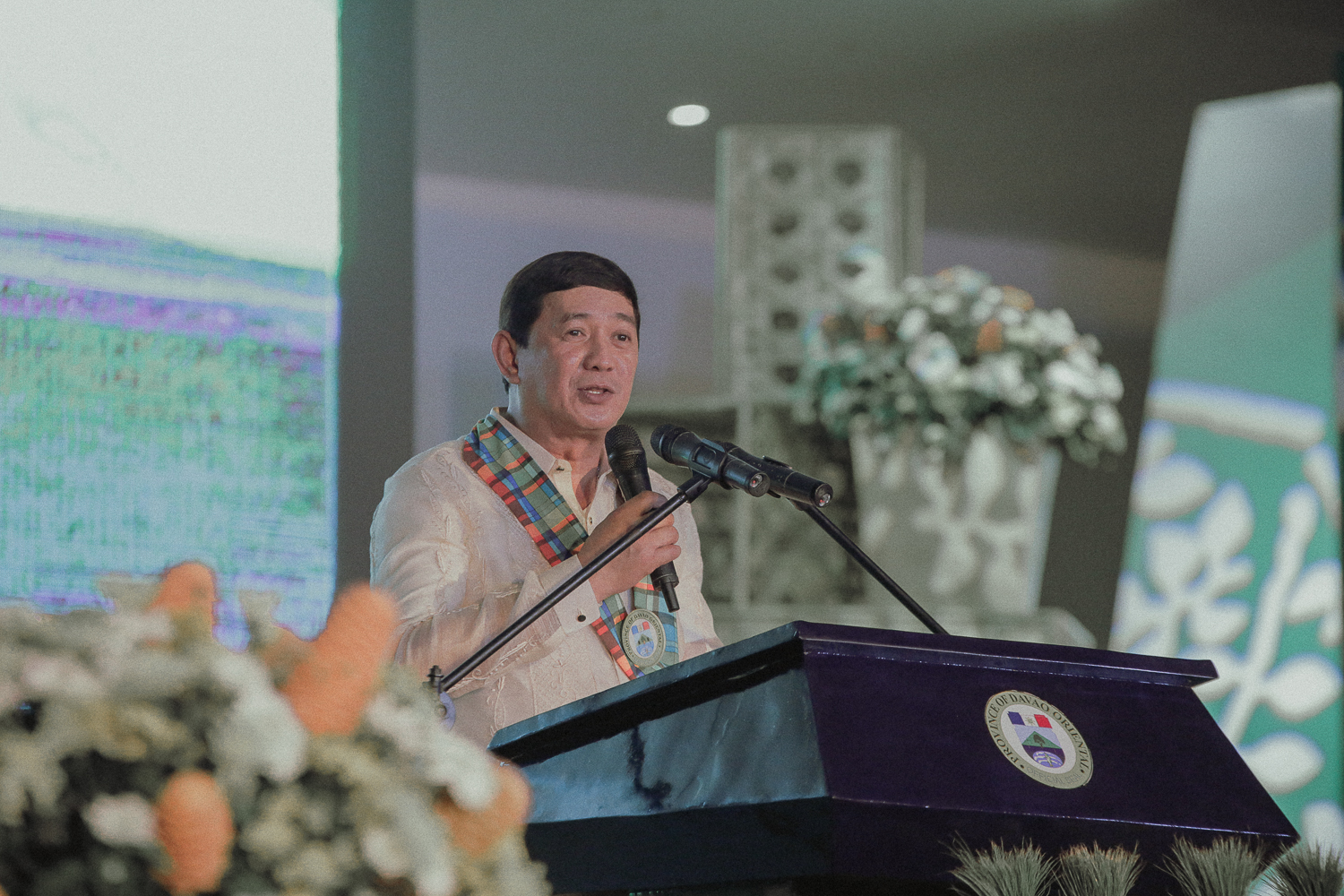Marking his five years in office, Governor Nelson Dayanghirang says he “cannot help but be personally proud that our gamble or experiment to invest on a new and untested strategy has positively impacted on the lives of those we promised to serve.”
With his steadfast commitment to continue to invest in peace and development programs and projects, Governor Dayanghirang is responsible for a paradigm shift in the role of the local government unit from being a service provider to that of a maker of an enabling environment for the communities to grow and prosper.
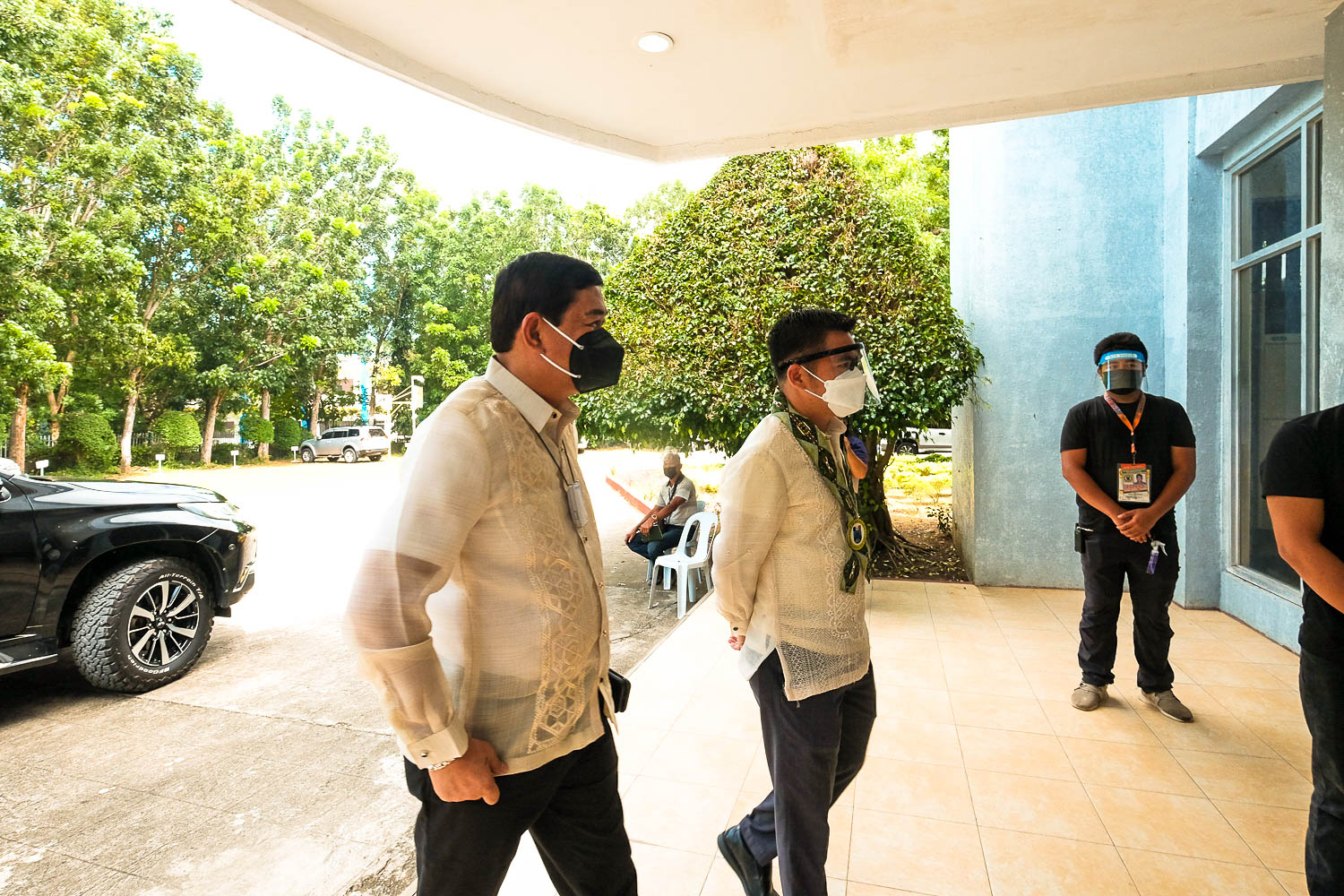
“Late in 2016, with the call for unity and convergence, we launched a new and untested strategy to realize our vision and development goals and objectives – ang Nagkakaisang Lingkod Bayan ng Davao Oriental or NLD. Kini nga stratehiya maingon nga unique tungod kay kita ang nag develop ini. Mao siyempre, kita pud ang ni testing kung epektibo ba kini nga pamaagi. Bisan pa man bag-o ni siya nga strategy, dugay na og simple lang ang konsepto diin kini gibase. It is fundamentally about bringing the government closer to the people,” says Governor Dayanghirang during his annual State of the Province Address on Wednesday, June 30, which he delivered before the members of the Sangguniang Panlalawigan or the Provincial Board in the City of Mati.
“This strategy has been adopted and used in the implementation of practically all the programs and initiatives of the province. As it is said that the only time to look back is to see how far we have come. After five years of determined execution, now should be a good time to look back to see how we fared in fulfilling our promise to the people, or if we have just been hallucinating all along. Dili ikalimud nga dako ang natabang sa NLD dinha sa malampuson nga pagpatuman sa mga programa og proyekto sa probinsya,” adds the Governor.
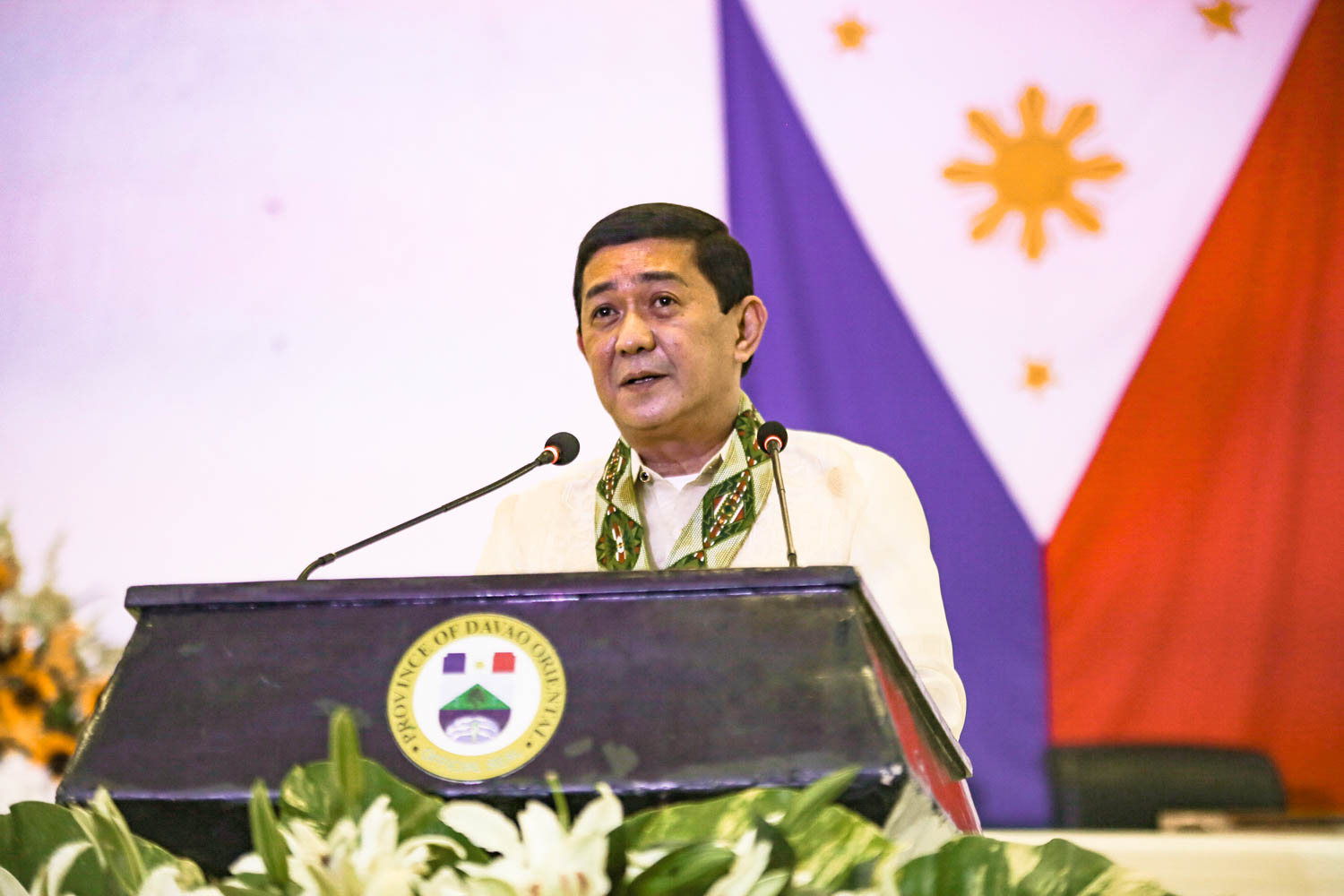
Governor Dayanghirang was off to a good start in 2016, the year he first assumed the governorship of the province armed with an overwhelming mandate from the people. The young and highly energetic Governor Dayangirang had earlier stressed that public servants like him “should always take the challenge to continuously live up to our commitments to the people. Let us give the best public service we could offer. We will implement programs and projects that will enable everyone to partake in our economic growth. We will continue to pursue highly innovative solutions to longstanding and new emerging challenges.”
FLAGSHIP PROGRAM
In successfully kicking off the implementation of his flagship program dubbed as Nagkakaisang Lingkod-Bayan ng Davao Oriental – Barangay Outreach Caravan (NLD-BOC), the Governor has clearly pointed out his highly ambitious goals of empowering the poor and disadvantaged and let them reap the full benefits of growth and development. Hence the need to be more innovative and be able to fine-tune strategies to attain the province’s development targets. Determined to make a lasting and relevant difference after more than five years of successfully pursuing his programs and projects, Governor Dayanghirang’s administration has opened up vast opportunities for many of his constituents, and continue to encourage huge investments in key areas, and is strengthening the adaptability and resiliency of his people.
“Long cognizant that peace is a prerequisite to development and progress, we have prioritized peace and order in our development agenda under the principle that the struggle for peace is not won through violence but in the ability of the government to touch the hearts and minds of the people,” says Governor Dayanghirang.
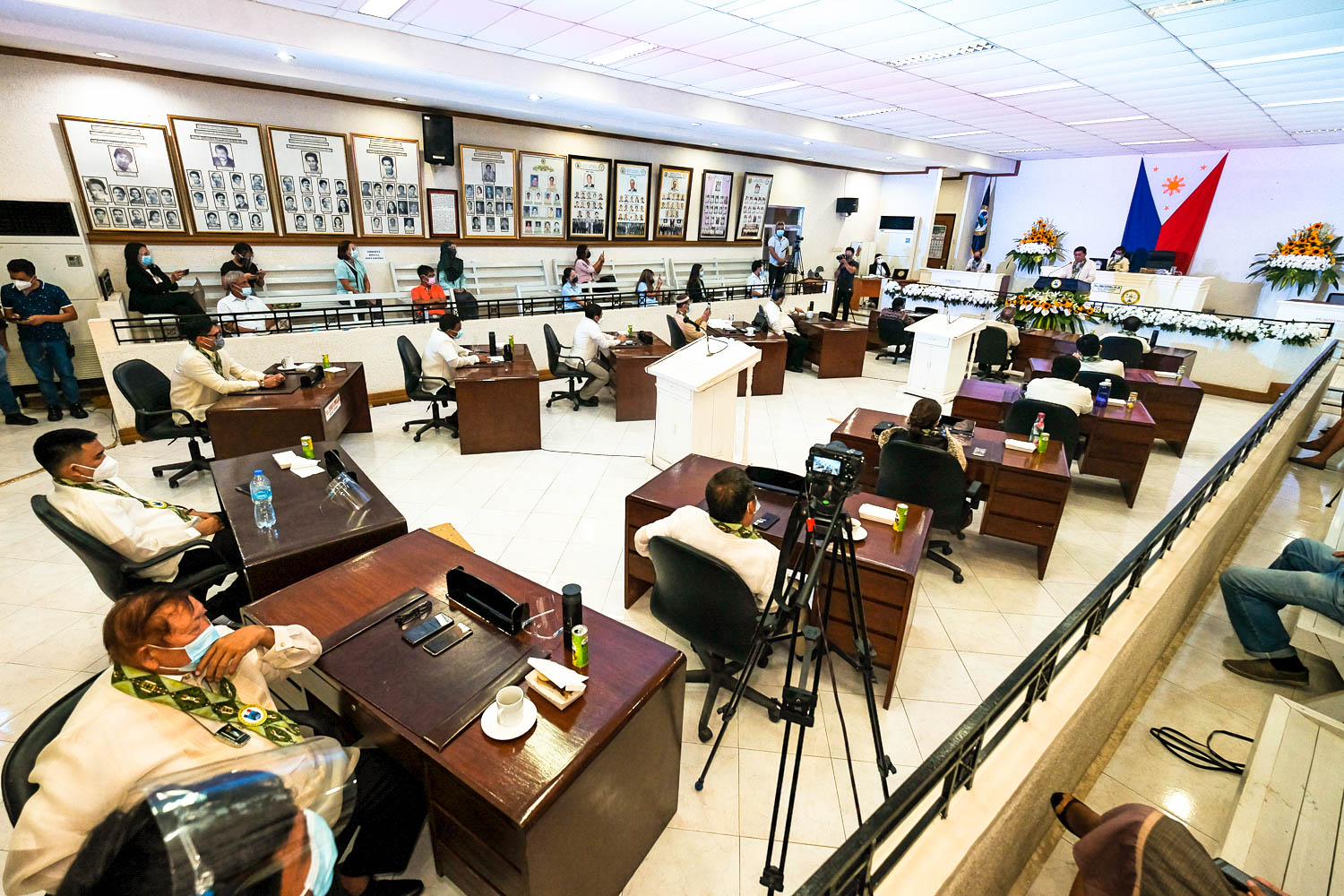
The provincial government often works with scarce resources but Governor Dayanghirang’s administration is driven by a sense of purpose. That is why it is undertaking highly innovative programs and projects that can dramatically change the lives of people. The NLD-BOC is treading paths less traveled, but one thing is sure: it is definitely redefining local governance and development.
“Ang katawhan nga gitutukan o gihatagan og pagtagad sa NLD-BOC mao kadtong anaa nagpuyo sa mga lagyo nga barangay o far-flung communities, nga tungod sa distansya, gihuna-huna na kini nga inaccessible o lisud masulod sa mga sakyanan. Kasagaran aning mga lugara, panagsa ra o dili kanunay mahatagan og hinabang o serbisyo sa gobyerno. Tungod usab sa kawad-on, kadaghanan sa mga residente dinhi dili pud makabahada dayun kung sila manginahanglan sa serbisyo sa gobyerno. They are the disadvantaged or underprivileged people who due to perceived absence of government or feel abandoned by it, are easily exploited and convinced or persuaded by the local communist NPAs to either join the ranks or provide them support,” says the Governor.
Seeking to foster greater inclusiveness and maximum participation in growth and development, the Governor’s flagship program on peace and development aims to reintroduce the government by bringing government services closer to the people. Knowing that the strength of the provincial government is limited, the Governor developed the local development strategy which banks on unity and convergence among all key players. Hence, as partnership become an important feature and highlight in Davao Oriental’s development direction, the Governor expanded and deepened collaboration with government agencies, local government units, and civil society organizations and the private sector.
The Governor stressed that rather than just passively staying in comfortable offices at the Provincial Capitol, it is best to institutionalize a pro-active approach of reaching out to the isolated, marginalized, and under-served constituents.
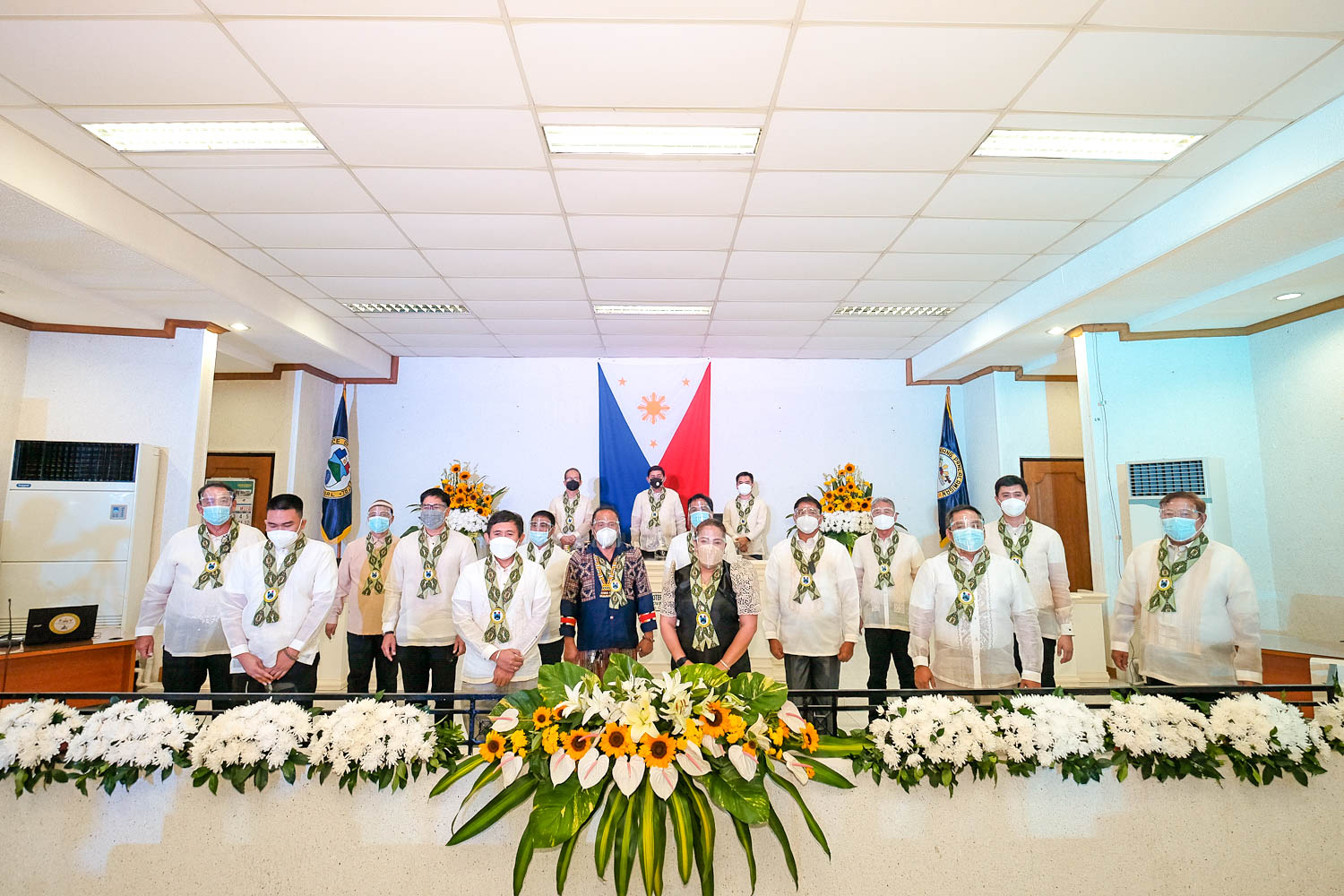
“Even amid the prevailing COVID-19 pandemic, the NLD-BOC has not stopped reaching out to these mostly geographically isolated and disadvantaged areas and communities with marginalized populations to provide free goods and essential services such as health, social services, and others. Since its launching in 2016, more or less 505,672 residents in 151 out of 183 brangays have received various government services through this program. When Executive Order Number 70 or the whole-of-nation approach to end local Communist armed conflict was issued by President Rodrigo Duterte and implemented in 2018, the concept of unity, convergence, and partnership was already deeply entrenched in our program implementation. Sa maong rason, nahimong sayon ang pagpahiangay sa EO 70 sulod sa mga plano og programa sa probinsya. Ang Davao Oriental nahimong una nga LGU sa Davao Region nga nagpatuman niining bag-ong pamaagi sa kalinaw diha sa pagmugna sa Provincial Task Force to End Local Communist Armed Conflict. In the hinterlands and countryside, the localized implementation of E.O. 70 was instrumental in promoting inclusive governance and civilian leadership through community dialogue and community healing, which were vital not only in conflict resolution but also in making communities heard, fostering open communication, and bridging the gap between the people and the government. This new approach also helped strengthen and reinforce the sustainability of the peace efforts of the government at the grassroots level. Ang atong programa sa kalinaw og kalamboan wala lamang gipabati sa ordinaryong katawhan ang tinood nga presensya og serbisyo sa gobyerno, apan nipukaw og nidani usab sa mga komunistang rebelde og masa nga mahibalik ang ilang pagsalig ngadto sa gobyerno. Sa pagkakaron, nagkadaghan og samot ang mga kanhing komunistang rebelde og mga masa nga nagpasibaw sa ilang tinguha nga mosurender. To further entice active rebels to yield, we are currently offering additional cash incentives in the amount of P100,000 to a surrenderee and another P50,000 to the facilitator. In fact, Davao Oriental has seen the highest number of surrenderees within the last several years in this administration,” says the Governor.
In implementing his flagship program, the provincial government forged a strong collaboration with peace and development partners from the national government agencies, the private sector, and civil society organizations. Each of the participating agencies is pooling its resources such as logistics and transportation costs, thus maximizing government funds and resources. The program has provided vital services such as medical and eye check-ups, dental services, minor surgery, health, and life insurance registration, processing of legal documents, livelihood seminars, and employment services, among many others. Free goods like medicines, planting materials, farming tools, school supplies, and food packs were also distributed to the communities. The program has also become a perfect venue for holding advocacy campaigns on anti-drug abuse, road safety, environmental protection, disaster preparedness, and countering violent extremism which targets the youth sector who are most vulnerable to radical influences and recruitment due to peer pressure and the influence of social media.
Governor Dayanghirang strongly believes that when people’s basic needs are met, there will be no reason for them to join the rebel group and rise against the government. With many people in the province now warmly embracing the Governor’s flagship program, young children especially those living in Communist insurgency-stricken hinterland villages have now become friendly and welcoming to government troops and police who accompany the personnel of participating government agencies, an indication that the program has succeeded in winning the hearts and minds of the people affected by the long-running Communist insurgency. The Governor says the program shows the other side of governance to the rebels and their sympathizers like compassion, understanding, and patience rather than running after them in offensives. During the caravan in the villages, the government fosters community dialogues and introduce community-owned projects in the hope to create communities of peace. Moreover, the caravan also served as an eye-opener for the local government officials as they see first-hand the poor condition of roads in the villages. As a result, the provincial government crafted the Provincial Road Network Development Plan to prioritize the construction and improvement of the road network to connect conflict areas with the rest of the community. Without access, the basic services will not reach these areas where the poorest of the poor in the province lives. Thus, many new roads are now being carved out and the people are happy because it has significantly shortened travel time from their remote villages to the commercial centers where the farmers market their agricultural produce. More importantly, the caravan and the vital road projects in conflict areas in the province have forged a good relationship between the government and the residents, and it has planted the seeds of trust that had long been missing in the communities. The new roads plus the healthy relationship have paved the way for other aspects of development to enter especially in the conflict areas. As the people now enjoy a warm relationship with the government, the flagship program is bringing them closer to the support services bankrolled by the national and local governments such as farmers’ training and a host of other livelihood programs and projects.
“CHALLENGING YET EXCITING, FUN-FILLED FUTURE”
The administration of Governor Dayanghirang has achieved mixed results in its sector-specific targets set at the beginning of his term. But his administration remains on track as it takes stock of the gains they have already achieved. And with the remarkable accomplishments of his administration, Governor Dayanghirang says that the journey to achieving his administration’s ambitious goals is long and difficult and that the challenges to encounter become more complex amid a constantly changing environment.
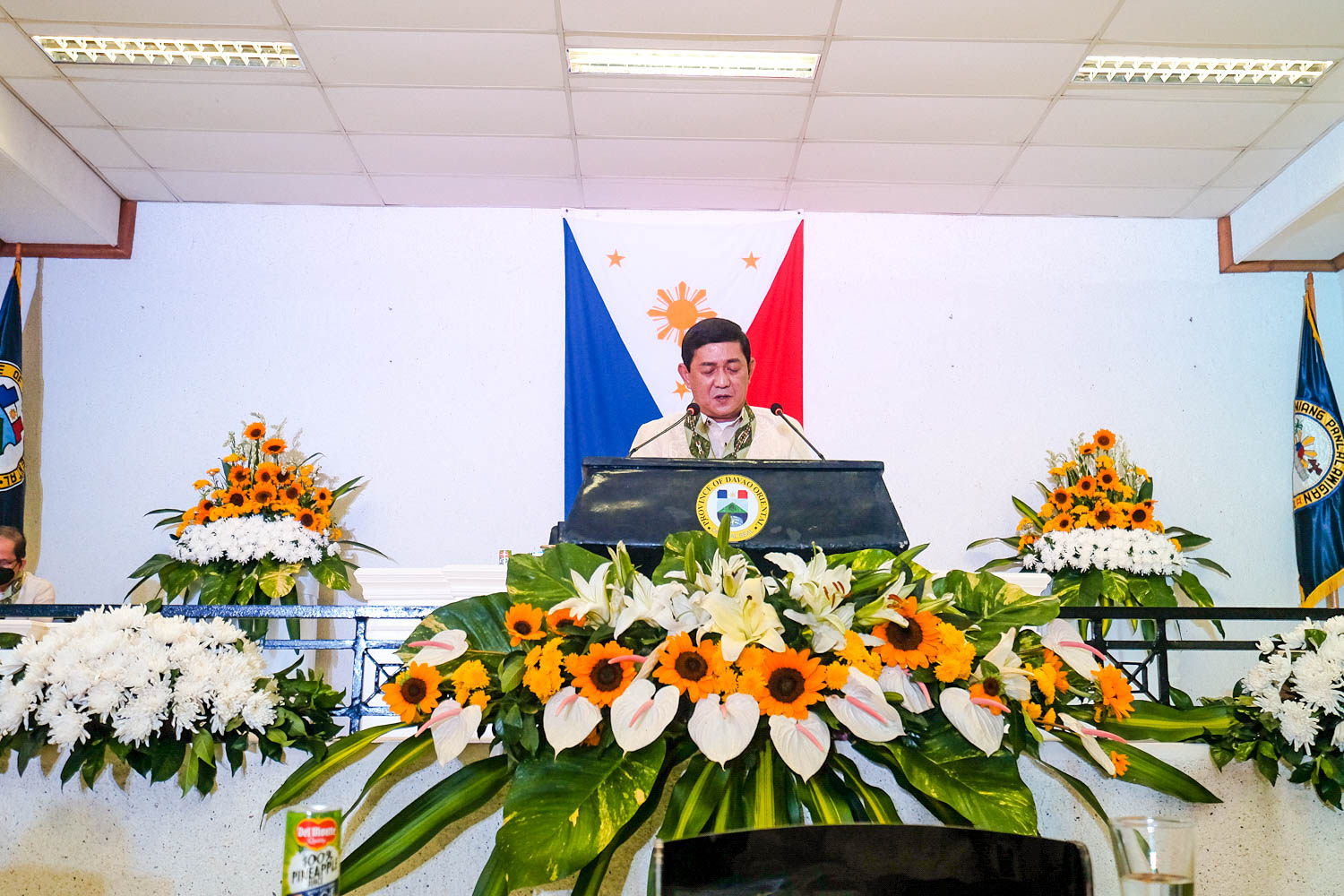
The past five years have been a testament that, indeed, no leader, however strong, can succeed at anything of greater importance unless he has the support and cooperation of the people he is tasked to lead and sworn to serve. Governor Dayanghirang has pointed out that he owes his leadership to the trust, cooperation, solidarity, and resiliency of his people, especially in these most trying times.
“Davao Oriental is facing a future that promises to be tasking, challenging in more ways than one, yet at the same time should also be exciting and fun-filled. Banking on the flourishing partnerships we have established with development partners over the years, I remain steadfast in my commitment to implement more meaningful programs and projects that will benefit most, if not all, of the residents of the province of Davao Oriental,” he says in the conclusion of his speech. By Ferdinand Zuasola
